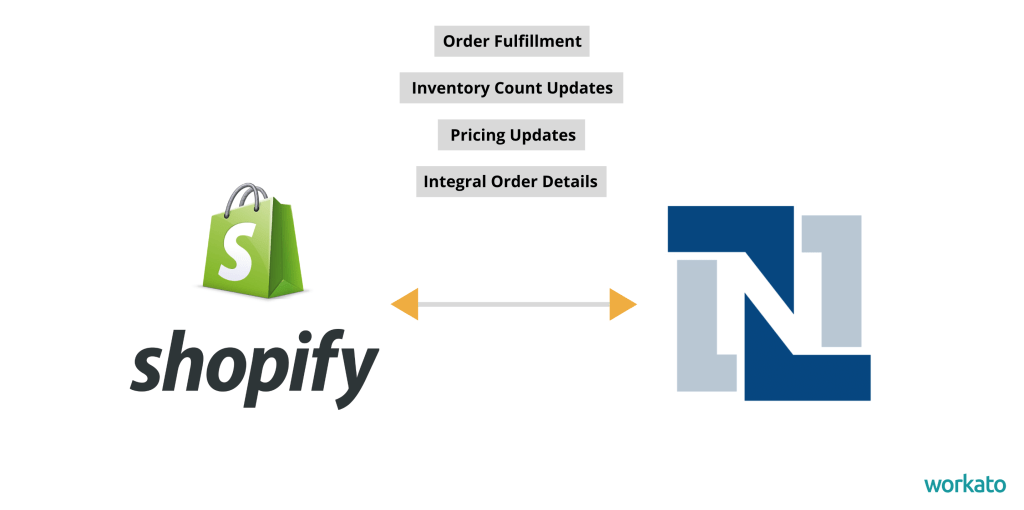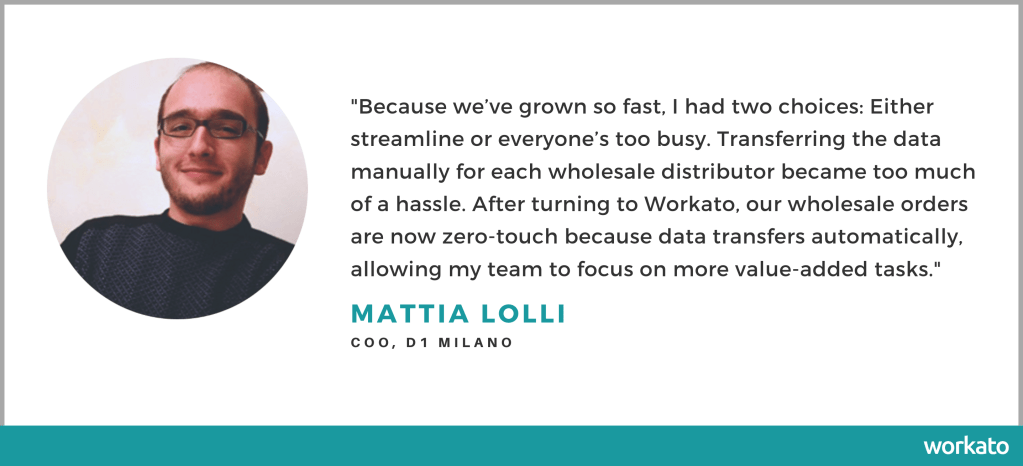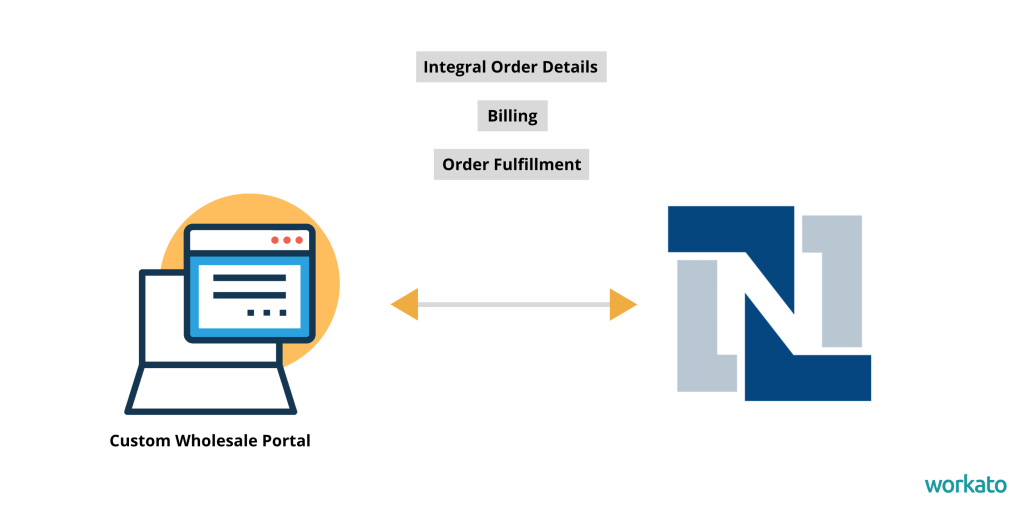D1 Milano is an Italian watch manufacturer founded in Milan in 2013. Despite being part of a market overflowing with smartwatches and legacy brands, D1 Milano is in hypergrowth, distributing to more than 35 countries worldwide. With consumers expecting watches to either do much more or to look and feel a certain way, D1 Milano is going against the grain, offering trendy fashions with unique materials that are a hit in Europe, the Middle East and Asia.
With its success, the company has a projected growth rate of 25% within the next year. With production and logistics mainly held in Hong Kong over the last several years, and early success in the Middle East, D1 is heading back to its hometown, expanding distribution in Italy.
Mattia Lolli, Chief Operating Officer and Systems Administrator at D1 Milano, began pushing the watch manufacturer to becoming a cloud company in 2016. As one of the first employees to join the team, he immediately saw the need for efficiency and helped adopt NetSuite as its ERP and brought on Shopify for eCommerce. As a startup, the company was run in spreadsheets but quickly outgrew this with the launch of models such as their Polycarbon and Ultrathin collection.
With a website powered by Shopify, Lolli was looking for a way to build eCommerce automation between Shopify and NetSuite, as it comprises 30% of their business. Though Shopify tells them integral order details – such as the buyer’s name, address, the product(s) they ordered, and quantity – they still needed to transfer that data to NetSuite for fulfillment. In the early days, Lolli would do this manually as there weren’t as many orders and the company was smaller – but as it began to expand internationally and eventually acquired a warehouse – the task became less efficient and warranted more time than Lolli could provide as he became an executive.

In looking for a solution, Lolli wanted a platform capable of handling eCommerce automation that was fast and easy to use and could transfer the data in real-time and found it in Workato through our partner One Pacific in Hong Kong. “For the sake of being easier and faster, Workato seemed the friendliest to use,” said Lolli. “I’m not an IT guy. I have knowledge of ERP systems, but even when it came to our NetSuite partner building the integration, I felt that Workato was the best option.”
“It used to be a tedious process to import the data manually and now, it happens in real-time on its own. This’ll be a great help, especially as we continue to grow,” he added.
The Shopify-NetSuite integration allows Lolli to focus on more high-level, complex tasks, not previously afforded by the older process.
Apps
- Shopify
- NetSuite
- Custom Wholesale Portal
Challenges
As D1 Milano rapidly grew, it became clear that they needed to integrate their ERP, NetSuite, with their eCommerce platform, Shopify, to alleviate manual data entry and support scaling. As they expanded sales in their home market of Italy, the need to streamline how wholesale orders were placed by independent agents also arose. Not only was the manual data entry taking precious time from high-level employees like the COO, but it also did not allow for real-time forecasting.
ROI With Workato
With Workato, D1 Milano built an automated workflow between Shopify and NetSuite making sales data instant. The company also built a custom wholesale portal powered by Workato, allowing distributors to enter order details on their own without involving a human. The wholesale ordering process is streamlined, allowing internal teams to focus on more complex orders. This is especially important as the company is projected to grow 25% this year and continued growth would have placed a strain on processes if they had not been automated.

Future-Proofing With Modular Recipes and eCommerce Automation
With the success of their first integrations and watching the company’s growth continuously rise, Lolli felt it was necessary to scale and build further integrations between these systems as soon as possible. “The more we grow and take on more locations, the stronger the need for robust integrations between the two systems. So, we’re trying to get ahead.”
In Italy, where the company has an office, the retail landscape is comprised of many small shops serviced by independent agents offering various products. At D1 Milano, the sales agents often would email the company’s customer service team, who’d then manually place the order in NetSuite. Because their larger distributors typically placed an order every 1-2 months, it was easy for them to import the data monthly to NetSuite for forecasting and reporting. However, as the company grew, this became less so as they realized the data transfer needed to happen much faster (and more often) at a rate that would keep up with distributor demand. Because of the complexity of the Italian market and to support this office with sales processing, D1 Milano is developing a wholesale portal where agents could upload order details themselves without involving the customer service team.
“Right now, though 70% of our business is through offline distribution, 30% of that segment occurs in Italy alone through our direct distribution channel,” said Lolli. “As most of the retailers in Italy are small independent shops, that can be a lot to keep up with and would be really painful for our sales team here if we had to keep doing that manually.”

Using Shopify as the interface, Lolli is building a custom portal that allows agents to upload their orders directly through the app. Upon entering your password, the app automatically knows to bill the payment details associated with your account (à la PayPal) – so all the agent has to do is submit the order and the transaction’s complete. And because the app uses Shopify as an interface, Lolli was able to use the same eCommerce automation recipes as their online purchasing orders and tweaked them slightly to fit the new app’s needs. Now, no human interaction is needed to process wholesale orders, allowing Lolli’s team to focus on ones that are more complex.
“We’re a young company and we wanted to try something new,” Lolli said. “Talking with the Workato team, I always had the impression that we were on the same page in terms of our company goal,” he added. “We’re thrilled with how this has gone thus far.”
Building Future Agile Integrations and Automations
Based off of the success of their first custom app, D1 Milano’s C-suite would like to build a second one that pulls KPIs by region from NetSuite and presents it to internal teams. This may incentivize sales managers to push distributors in their region, as well as help with forecasting. With such access, it’ll be easy to see who produced what and how well each region performed. “It’ll be gamification of the work and some internal activities,” said Lolli. “Once we have the connector, we’ll be able to use it to do different things. So that’ll be exciting to see,” he added.
Another project his team is pursuing deals with logistics. Once an order is received in NetSuite, someone on their team still has to inform the warehouse to fulfill the order. Currently, this is done manually via email. However, given the number of logistics apps the warehouse uses (as a separate entity), Lolli hopes to use Workato to integrate D1 Milano’s instance of NetSuite with the warehouse’s tools so that data is transferred automatically in real-time.
“Because we’ve grown so fast, I have two choices: Either streamline or everyone’s too busy,” Lolli said. “We have to increase productivity as we grow, so we’re going to maximize eCommerce automation as much as we can to make our jobs easier, and I know we can do that with Workato.”
